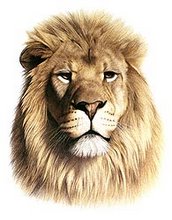B.↓ Lektion 5. ↔︎ Lektion 7.
/Home: 6. Hochzeitsreise.
Lek6. B.↓ Top.↑
LEKTION 6/iii/en Basic 2.
f/1
1. Ihr seid Männer und wir sind Frauen. You are men and we are women. - 2. Die Männer. The man. - 3. Wir sind Frauen und ihr seid Männer. We are women and you are men. - 4. Die Kinder. The children. - 5. Die Jungen sind Kinder, The boys are children. - 6. They are girls. Sie sind Mädchen. - 7. That is a man. Das ist ein Mann. - 8. That is a boy. Das ist ein Junge. - 9. We are boys. Wir sind Jungen. - 10. They are men. Sie sind Männer. - 11. Lukas and Anna are children. Lukas und Anna sind Kinder. - 12. They are children. Sie sind Kinder. - 13. Ihr seid Männer und wir sind Frauen. You are men and we are women. -
• die Stirn, forehead, noun. a. Die Frau hat Falten auf ihrer Stirn: The woman has clear wrinkles on her forehead; b. Wenn er Kopfschmerzen hat, reibt er seine Stirn: When he has a headache, he rubs his forehead; c. Wenn er Kopfschmerzen hat, reibt er seine Stirn: When he has a headache, he rubs his forehead; d. Falten auf der Stirn: wrinkles on the forehead; e. Stirnfalten: forehead wrinkles.
• wirtschaftlich, economical, adjective. Ich suche nach einer wirtschaftlichen Lösung: I am looking for an economical solution. - TLde. 01-06-2020
| Home - Gr6 - Lek6 - Stories - Duo - |
| Words/111 - GP101 - TLde - Pint/6 - Verbi - Lezioni - Fonti didattiche - |
1. Hochzeitsreise. - 2. Eva ist im Taxi. - 3. Guten Morgen! - 4. Guten Morgen! Zum Bahnhof, bitte! - 5. Gerne. - 6. Urlaub? - 7. Nein... - 8. Ich habe ein Ticket nach Wien. - 9. Na ja… zwei Tickets. - 10. Wien ist schön. - 11. Es ist meine Hochzeitsreise. - 12. Und wo ist der Mann? - 13. Ich habe keinen Mann. - 14. Ich habe eine Frau und sie ist nicht einfach. - 15. Sie will nicht mit mir nach Wien fahren. - 16. Ich bin traurig. - 17. Es tut mir leid. - 18. Okay, wir sind am Bahnhof. - 19. Eine Frau rennt zum Taxi. - 20. Sophia? - 21. Ewa! - 22. Es tut mir so leid! - 23. Ich liebe dich. - 24. Ich liebe dich auch. - 25. Ich fahre mit dir nach Wien! - 26. Gute Reise!
Gr6. B.↓ Top.↑German plurals are also strange :)
In English, making plurals out of singular nouns is typically as straightforward as adding -(e)s at the end of the word. In German, the transformation is more complex. You will learn details about this in a later lesson.
In some languages (such as French or Spanish), genders are also differentiated in the plural. In German, the plural form does not depend on what gender the singular form is.
Regardless of grammatical gender, all plural nouns take the definite article die (You will later learn how "cases" can modify this). This does not make them feminine. The grammatical gender of a word never changes. Like many other words, die is simply used for multiple purposes.
Just like in English, there's no plural indefinite article.
In some languages (such as French or Spanish), genders are also differentiated in the plural. In German, the plural form does not depend on what gender the singular form is.
Regardless of grammatical gender, all plural nouns take the definite article die (You will later learn how "cases" can modify this). This does not make them feminine. The grammatical gender of a word never changes. Like many other words, die is simply used for multiple purposes.
Just like in English, there's no plural indefinite article.
| English | German |
|---|---|
| a man | ein Mann |
| men | Männer |
You, you and you
Most languages use different words to address one person, or several people.
In German, when addressing a single person, use du:
Note that these only work for people you are familiar with (friends, family, …). For others, you would use the formal "you", which we teach later in this course. So stay tuned :)
In German, when addressing a single person, use du:
- Du bist mein Kind. (You are my child.)
- Ihr seid meine Kinder. (You are my children.)
Note that these only work for people you are familiar with (friends, family, …). For others, you would use the formal "you", which we teach later in this course. So stay tuned :)
Ihr vs. er
If you're new to German, ihr and er may sound confusingly similar, but there is actually a difference. ihr sounds similar to the English word "ear", and er sounds similar to the English word "air" (imagine a British/RP accent).
Don't worry if you can't pick up on the difference at first. You may need some more listening practice before you can tell them apart. Also, try using headphones instead of speakers.
Learn the pronouns together with the verb endings. This will greatly reduce the amount of ambiguity.
Don't worry if you can't pick up on the difference at first. You may need some more listening practice before you can tell them apart. Also, try using headphones instead of speakers.
Learn the pronouns together with the verb endings. This will greatly reduce the amount of ambiguity.
Verb conjugation
Here is the complete table for conjugating regular verbs:
Example: trinken (to drink)
Notice that the first and the third person plural have the same ending.
And here's the complete table for the irregular verb sein (to be):
You will learn about the distinction between "formal" and "informal" later (it's easy).
Example: trinken (to drink)
| English person | ending | German example |
|---|---|---|
| I | -e | ich trinke |
| you (singular informal) | -st | du trinkst |
| he/she/it | -t | er/sie/es trinkt |
| we | -en | wir trinken |
| you (plural informal) | -t | ihr trinkt |
| they | -en | sie trinken |
And here's the complete table for the irregular verb sein (to be):
| English | German |
|---|---|
| I am | ich bin |
| you (singular informal) are | du bist |
| he/she/it is | er/sie/es ist |
| we are | wir sind |
| you (plural informal) are | ihr seid |
| they are | sie sind |
Lek6. B.↓ Top.↑
 |
| die Stirn: 30-01-20 |
1. Ihr seid Männer und wir sind Frauen. You are men and we are women. - 2. Die Männer. The man. - 3. Wir sind Frauen und ihr seid Männer. We are women and you are men. - 4. Die Kinder. The children. - 5. Die Jungen sind Kinder, The boys are children. - 6. They are girls. Sie sind Mädchen. - 7. That is a man. Das ist ein Mann. - 8. That is a boy. Das ist ein Junge. - 9. We are boys. Wir sind Jungen. - 10. They are men. Sie sind Männer. - 11. Lukas and Anna are children. Lukas und Anna sind Kinder. - 12. They are children. Sie sind Kinder. - 13. Ihr seid Männer und wir sind Frauen. You are men and we are women. -
• die Stirn, forehead, noun. a. Die Frau hat Falten auf ihrer Stirn: The woman has clear wrinkles on her forehead; b. Wenn er Kopfschmerzen hat, reibt er seine Stirn: When he has a headache, he rubs his forehead; c. Wenn er Kopfschmerzen hat, reibt er seine Stirn: When he has a headache, he rubs his forehead; d. Falten auf der Stirn: wrinkles on the forehead; e. Stirnfalten: forehead wrinkles.
• wirtschaftlich, economical, adjective. Ich suche nach einer wirtschaftlichen Lösung: I am looking for an economical solution. - TLde. 01-06-2020
14. Ihr seid Frauen und wir sind Männer. You are women and we are men. - 15. Die Kinder. The children. - 16. Ihr seid Männer und wir sind Frauen. You are men and we are women. - 17. Die Männer. The men. - 18. Ihr seid Frauen und wir sind Mädchen. - You are women and we are girls. - 19. Die Jungen sind Kinder. The boys are chilldren. - 20. Wir sind Frauen und ihr seid Männer. We are women and you are men. - 21. Anna und Maria, ihr seid Frauen. Anna and Maria, you are women. - 22. They are girls. Sie sind Mädchen. - 23. The children. Die Kinder. - 24. They are men. Sie sind Männer. - 25. They are children. Sie sind Kinder. - 26.
• der Sänger, singer (noun): a. Ich bin Sänger: I'm a singer; b. männlicher Sänger: male singer; c. Opernsänger: opera singer. GP101/1-2-20.
→ Lektion 7.







Nessun commento:
Posta un commento